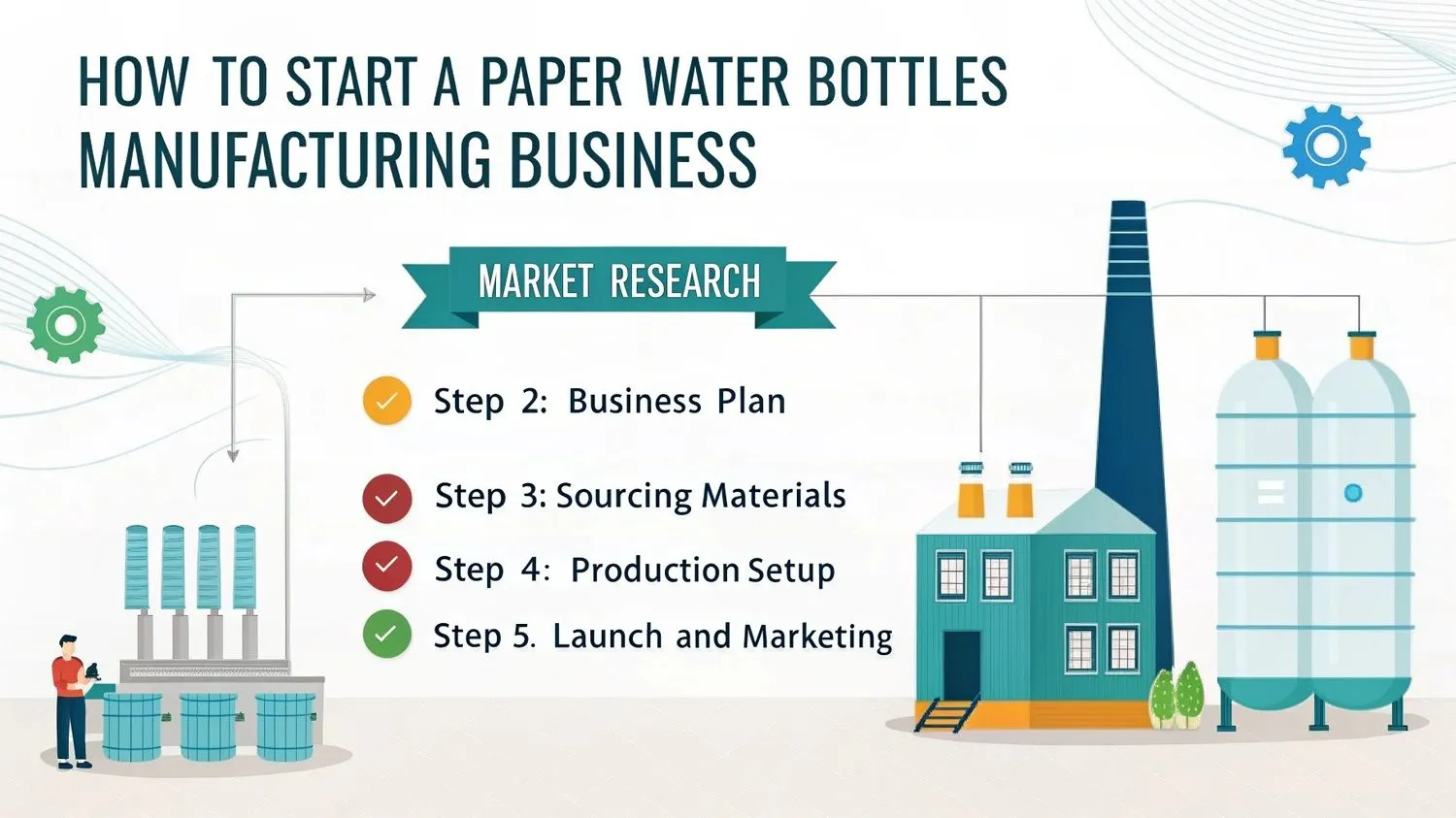The biotechnology sector has rapidly evolved into a thriving and profitable industry, offering immense potential for innovation and financial gain. While traditionally considered a high-capital domain, recent advancements and democratization of technology have opened doors for small investors to participate in the biotech business. Today, even modest capital holders can explore promising opportunities in areas like bio-agriculture, health diagnostics, nutraceuticals, and more. This sector continues to attract interest due to its contribution to improving healthcare, food security, environmental sustainability, and quality of life.
Contents
- 1 Emerging Biotech Business Opportunities for Small-Scale Entrepreneurs
- 1.1 1. Tissue Culture Plant Nursery
- 1.2 2. Probiotic and Fermented Products
- 1.3 3. Diagnostic Kits and Reagents Manufacturing
- 1.4 4. Organic Bio-Fertilizers Production
- 1.5 5. Microalgae Cultivation for Bio-products
- 1.6 6. CRISPR-Based Genetic Testing Startups
- 1.7 7. Bioinformatics Services and Data Analytics
- 1.8 8. Bioplastics and Biodegradable Packaging
- 1.9 9. Stem Cell Storage and Therapy Advisory Services
- 1.10 10. Nutraceutical Formulation and Packaging
- 1.11 11. DNA-Based Personalized Nutrition Plans
- 1.12 12. Aquaculture Biotechnology
- 1.13 13. Educational Biotech Kits for Students
- 1.14 14. Biotech Waste Management and Recycling
- 1.15 15. Biomaterial Production (Silk, Collagen, Chitosan)
- 1.16 Key Tips for Small Investors Entering Biotech:
- 1.17 Conclusion
Emerging Biotech Business Opportunities for Small-Scale Entrepreneurs
Small investors looking to enter the biotech business space must focus on ideas that combine affordability with scalability. Thanks to outsourcing models, contract research organizations (CROs), and shared lab spaces, the initial barrier to entry has lowered significantly. Below are some of the most promising biotech startup concepts suited for small investors:
1. Tissue Culture Plant Nursery
Setting up a tissue culture lab to propagate plants in a controlled environment is a lucrative biotech venture. This business model is suitable for small investors because it requires relatively low capital and can be operated in small spaces. The plants grown via tissue culture are disease-free and uniform in size and quality, which makes them ideal for commercial farming and exports. High-value crops like bananas, orchids, strawberries, and medicinal plants are particularly in demand.
2. Probiotic and Fermented Products
With increasing awareness of gut health, demand for probiotic supplements and fermented foods like kefir, kombucha, and sauerkraut is growing. Entrepreneurs can establish a small-scale biotech business focused on manufacturing and marketing natural probiotic products. The formulation and fermentation processes are simple, and the startup costs are minimal. Additionally, partnerships with dietitians and wellness influencers can boost brand visibility and market reach.
3. Diagnostic Kits and Reagents Manufacturing
The global pandemic has shown the world the importance of rapid diagnostics. Starting a diagnostic kit manufacturing unit is a profitable idea for small investors. These kits can be for infectious diseases, pregnancy testing, blood sugar monitoring, or food contamination. Manufacturing diagnostic reagents and kits under proper licensing and quality standards can serve local clinics, pathology labs, and government tenders. Moreover, localization reduces reliance on imported kits, boosting market demand.
4. Organic Bio-Fertilizers Production
With the organic farming movement gaining traction, bio-fertilizers and bio-pesticides are in high demand. These are eco-friendly alternatives to chemical fertilizers and enhance soil fertility naturally. Starting a small production unit for bio-fertilizers made from nitrogen-fixing bacteria, mycorrhiza, or phosphate-solubilizing microorganisms is an excellent biotech business idea. This venture supports sustainable agriculture and aligns with government subsidies and eco-policy initiatives.
5. Microalgae Cultivation for Bio-products
Microalgae such as Spirulina and Chlorella are rich in proteins, vitamins, and antioxidants. Cultivating microalgae is a scalable and profitable biotech business. Small investors can set up photobioreactors or open pond systems in rural or semi-urban areas. The harvested algae can be processed into food supplements, cosmetic ingredients, or even animal feed. With increasing vegan and health-conscious consumer bases, the demand for such natural ingredients is expected to rise.
6. CRISPR-Based Genetic Testing Startups
Though slightly more technical, starting a small genetic testing service using CRISPR-based tools is feasible with the right partnerships. These startups can offer services like ancestry testing, inherited disease detection, or genome profiling. Investors can collaborate with academic researchers and laboratories for access to platforms and expertise. As this sector matures, licensing CRISPR-related applications can yield high returns for early adopters.
7. Bioinformatics Services and Data Analytics
Not all biotech startups require wet-lab setups. Bioinformatics is a data-driven biotech business field involving software development, genome analysis, and drug discovery support. If you have a background in IT or can partner with a software expert, starting a bioinformatics consulting firm can be profitable. These services support pharmaceutical companies, research labs, and hospitals with customized data solutions.
8. Bioplastics and Biodegradable Packaging
As plastic pollution becomes a global concern, bioplastics—derived from biological sources like starch, corn, or algae—are becoming essential alternatives. A small biotech business focusing on bioplastic production or biodegradable packaging materials can find ample buyers in the food, fashion, and e-commerce industries. The capital requirement is moderate, and innovations in material sciences continue to reduce production costs.
9. Stem Cell Storage and Therapy Advisory Services
Although stem cell banks are capital-intensive, small investors can still benefit by providing allied services. These include stem cell therapy advisory, patient education, and collaboration with hospitals for lead generation. You can also offer logistics solutions for sample transport and storage coordination. This model allows entrepreneurs to participate in a highly promising sector without owning a full-fledged lab.
10. Nutraceutical Formulation and Packaging
Nutraceuticals, which include dietary supplements, functional foods, and herbal products, combine nutrition and pharmaceuticals. With the rising demand for preventive healthcare, small-scale manufacturing or white-label branding of nutraceuticals is a good entry point into the biotech business. Entrepreneurs can focus on immunity boosters, anti-aging formulas, joint health supplements, and stress management products using naturally derived ingredients.
11. DNA-Based Personalized Nutrition Plans
A highly trending concept in healthtech-biotech convergence is DNA-based diet recommendations. Businesses in this niche collect DNA samples from clients and offer diet charts based on genetic predispositions. The data is analyzed using genome sequencing services (outsourced) and interpreted through proprietary algorithms. Starting such a venture needs basic infrastructure, but once built, it allows scalability with low variable costs.
12. Aquaculture Biotechnology
Biotech solutions for aquaculture include vaccines for fish, improved breeds, disease diagnostics, and feed supplements. A small biotech business in this area could focus on developing or distributing biotech-based inputs for fish farmers. India, China, and Southeast Asia are seeing a boom in fish farming, making this a highly rewarding niche.
13. Educational Biotech Kits for Students
There is growing demand for hands-on STEM education tools, particularly in biotechnology. Startups that develop low-cost, safe, and reusable biotech lab kits for school and college students are carving a niche in this space. These kits can demonstrate DNA extraction, plant tissue culture, enzyme action, and more. This is a great idea for educators and science enthusiasts looking to build a socially impactful business.
14. Biotech Waste Management and Recycling
Biotechnology plays a key role in converting organic waste into useful products like bioenergy, compost, or enzymes. A small-scale venture focusing on biotech-based waste recycling, particularly from food processing or agriculture, can yield dual benefits—economic and environmental. Bio-digesters, composting enzymes, and microbe-based treatments can be offered as products or services.
15. Biomaterial Production (Silk, Collagen, Chitosan)
Biomaterials like silk proteins, collagen, and chitosan have applications in wound healing, cosmetics, and tissue engineering. Setting up a small manufacturing or packaging unit focusing on such ingredients, especially if sourced from sustainable or local raw materials, can become a profitable biotech business.
Key Tips for Small Investors Entering Biotech:
-
Start with market research: Understand the demand, regulations, and local needs before investing.
-
Leverage outsourcing and partnerships: Many biotech processes can be outsourced or partnered through research institutions.
-
Use government schemes: Explore biotechnology-focused subsidies, startup funds, or incubators.
-
Build expertise: Enroll in biotech startup bootcamps or collaborate with experienced scientists and technologists.
-
Think scale later: Begin small with validated MVPs (Minimum Viable Products), then scale operations with profits or external funding.
Conclusion
The biotech business landscape is no longer restricted to corporate giants and research conglomerates. With the democratization of science, reduced lab setup costs, and demand for sustainable, personalized solutions, small investors can now play an active role in biotech innovation. Whether you’re interested in plant science, bioinformatics, diagnostics, or sustainable materials, there’s a biotech niche that matches your passion and investment capacity. By choosing the right idea, conducting thorough market validation, and collaborating with experts, you can build a profitable and meaningful business in the ever-evolving biotech sector.
Visit the page Select and Choose the Right Business Startup for You for sorting out the questions arising in your mind before starting any business and know which start-up you can plan.
We, at NPCS, endeavor to make business selection a simple and convenient step for any entrepreneur/startup. Our expert team, by capitalizing on its dexterity and decade’s long experience in the field, has created a list of profitable ventures for entrepreneurs who wish to diversify or venture. The list so mentioned is updated regularly to give you a regular dose of new emerging opportunities.














